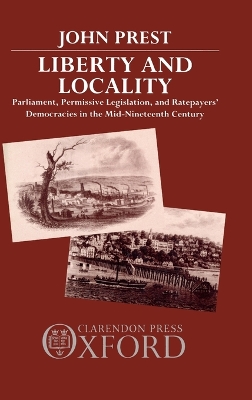This is a study of local government and permissive legislation in nineteenth-century Britain. It argues that permissive legislation facilitated local initiative and debate, and that local initiatives were often more effective than national legislation.
In the eighteenth century, every locality which wished to improve or police its streets had to obtain its own private Act of Parliament. By the nineteenth century, when the construction of a habitable urban environment had become a matter of urgency, Parliament had recourse to `permissive' or `adoptive' legislation, which the localities were free to adopt, or not, as they chose. Parliament facilitated, but did not require, local action, and so long as initiative and responsibility remained in
local hands, relations between central and local government were relaxed. In the 1850s and 1860s, the House of Commons conceived itself to be an imperial parliament, not a vestry, and Local Boards thought of themselves as parliaments in miniature. Thereafter Parliament's preference for a permissive
system gradually yielded to a concern with equality of provision.
Twentieth-century historians have largely written from the point of view of the centralizers and the permanent officials in the Department of State. Liberty and Locality puts the emphasis back upon Parliament, where the decisions were taken, and the localities themselves, where their consequences were felt.
- ISBN10 0198201753
- ISBN13 9780198201755
- Publish Date 5 April 1990
- Publish Status Active
- Publish Country GB
- Publisher Oxford University Press
- Imprint Clarendon Press
- Format Hardcover
- Pages 248
- Language English
